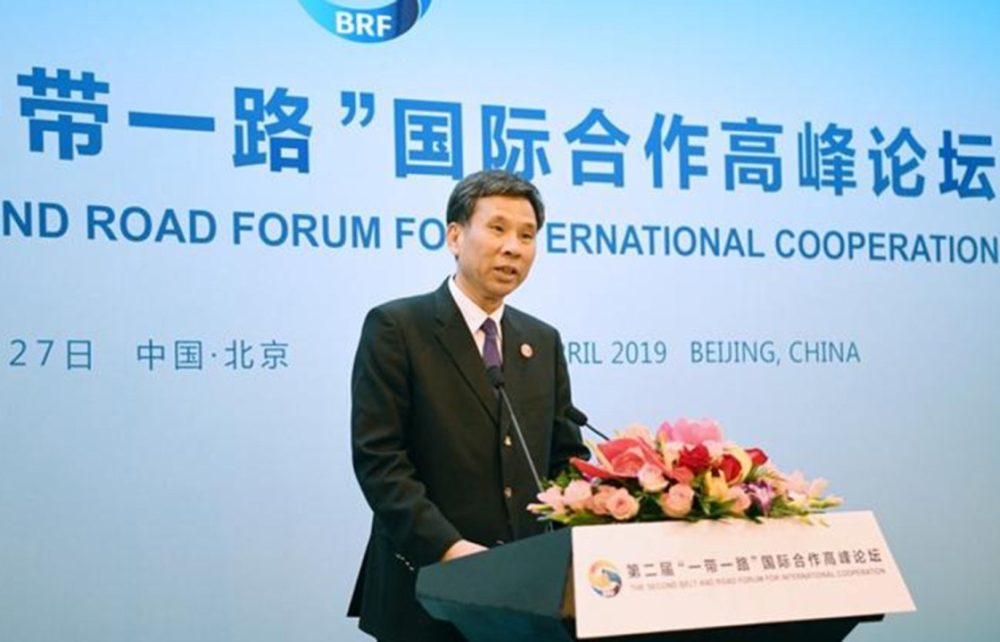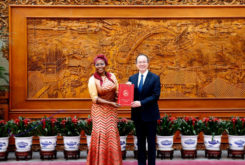China has suspended USD 2.1 billion of debt service payments from 23 indebted poor countries, to assist the fight against the coronavirus pandemic, in line with the Group of Twenty (G20), which includes Angola.
According to the G20 summit declaration released on Sunday, the Debt Service Suspension Initiative (DSSI) will be extended until June 2021.
“We are committed to implementing the Debt Service Suspension Initiative (DSSI) including its extension through June 2021, allowing DSSI-eligible countries to suspend official bilateral debt service payments,” the document says.
“As of 13 November 2020, 46 countries have requested to benefit from the DSSI, amounting to an estimated USD 5.7 billion of 2020 debt service deferral,” it adds.
The G20 adopted the DSSI in April, offering a temporary suspension of government-to-government debt repayments to 73 developing countries to help them weather the impact of the coronavirus pandemic.
Many countries are unable to repay their debts amid the coronavirus pandemic and the economic crisis it has provoked, with Zambia and Angola considered among those in highest financial distress.
The IMF recently announced that Angola will receive USD 6.2bn in debt service relief over the next three years (to 2023) as a result of agreements with three of its major creditors – most likely Chinese banks, although this has not been confirmed.
Saudi Finance Minister Mohammed Al-Jadaan told a news conference after the virtual summit that poor countries would be offered assistance in the short-term and medium-term perspective.
On the eve of last weekend’s G20 summit, Chinese Finance Minister Liu Kun said on Friday that the China International Development Cooperation Agency and official bilateral lender Export-Import Bank of China had suspended debt service payments worth USD 1.353 billion as part of the DSSI.
Liu said China Development Bank (CDB) – which Beijing classes as a commercial creditor – had “on a voluntary basis and according to market principles, actively responded to the DSSI”.
By the end of September, CDB had signed agreements with DSSI beneficiaries involving US$748 million.
The World Bank and the Group of Seven (G7) countries have also pushed for CDB to take part as an official bilateral lender for the DSSI to be effective. However, China has argued that since CDB lends on commercial instead of concessional terms, the bank should be treated as a commercial lender.
At a G20 finance ministers and central bank governors meeting on Friday, World Bank Group president David Malpass said countries were facing major debt challenges, “such as in Angola and Ethiopia where, in the absence of permanent debt relief, the poverty outlook remains bleak”.
“I was pleased to see that, in Zambia, non-Paris Club creditors such as China’s Exim Bank are applying the new DSSI term sheet and have suspended debt service payments. That’s an important and welcome step,” Malpass said.
For its part, China has pushed for the World Bank to be included in the DSSI, a move that has so far been resisted by other World Bank/IMF members. The World Bank has resisted calls for a multilateral debt standstill.
Of the amount due from poor nations taking part in the G20 debt plan between May and December this year, 70 per cent, or USD 7.17 billion, was to China, according to World Bank data. That amount is expected to rise to USD 10.51 billion, or 74 per cent of the total, next year.
On Friday, Liu called on multilateral creditors like the World Bank to take part in the debt treatment process to help the poorest countries through this challenging time.
“If the World Bank takes part in debt treatment through setting up a multilateral debt relief facility, China will positively consider contributing to the facility as such to help ease the debt burden on the poorest countries,” he said.
On Monday, Exim Bank of China said it had suspended the payment of all interest and principal on sovereign loans amounting to USD 110 million due between May 1 and December 31, 2020. And in late October, Lusaka reached a deal with CDB to defer interest and principal repayments for six months until April 25, 2021.




